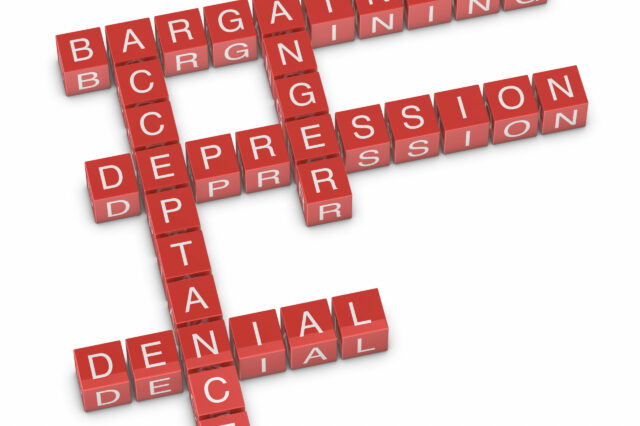Understanding the Stages of Grief
Often the death of a loved one or other difficult situation can make us evaluate our own feelings of mortality.

In this era of the COVID-19 pandemic, we all are too familiar with the term “grief.” Grief is the natural reaction to a loss which could be due to a terminal illness, death of a loved one, end of an important relationship, loss of a job, severe injury, social isolation or many other unfortunate situations. Although people who are grieving cannot initially control what caused the grief, they can prepare themselves for the varying coping stages.
Often the death of a loved one or other difficult situation can make us evaluate our own feelings of mortality. Throughout each stage, a common thread of hope emerges. Remember this quote by Sabaa Tabir, “As long as there is life, there is hope. As long as there is hope, there is life.”
There are five stages of grief that were first proposed by Elisabeth Kübler-Ross in her book, “On Death and Dying.” According to her research, during bereavement we spend different lengths of time working through each stage with different levels of intensity. The key to understanding the stages is not to feel like you must go through every one of them in precise order. Instead, it’s more helpful to look at them as guides in the grieving process to help you proceed to another stage.
Denial
The first reaction to learning of a terminal illness or death of a loved one is to deny it, as it is overwhelming. Those experiencing this commonly think, “This cannot be true!” This is a temporary response that helps us through the first wave of shock and pain.
Anger
As the masking effects of denial wears off, reality emerges. We may become angry with thoughts like, “Why me?” The anger may be toward strangers, friends or family or even at our loved one for leaving us and causing all this pain. The health care professionals who diagnosed and treated the patient could become a convenient target of the displaced anger. This is why it is important for the patients’ family and friends to process the information and treatment with the health care professional after the loss to clear doubts, have some closure and process emotions.
Bargaining
The normal reaction to feelings of helplessness and vulnerability is often a need to regain control. Guilt often accompanies bargaining. We begin to think that there was something we could have done differently to save our loved one, considering scenarios like:
- If only we had sought medical attention sooner
- If only we got a second opinion from another doctor
- If only we had tried to be a better person to him/her
Depression
Two types of depression are associated with mourning. The first one is the reaction to the practical implication, such as the cost of burial, as that can trigger financial strain. The second type of depression is more subtle, i.e., excessive focus and sadness when preparing to say goodbye to our loved one and separating from them. In both types of depression, people can benefit from supportive counseling.
Acceptance
This stage is difficult for many to reach. Reaching this stage means that the grieving person has reached a stage of some objectivity and emotional detachment. This stage varies according to a person’s situation. People that may be sick can enter this stage a long time before the people left behind, who must necessarily pass through their own individual stages of dealing with grief.
There is more research on stages of grief, but it is important to interpret the stages loosely and expect people’s journey to vary. There is no universal progression of stages. Several stages can hit at the same time or occur out of order. The stages outlined here are simply a general guide of what to expect.
If you are experiencing an overwhelming amount of grief, talking to someone can help. UF Health Psychiatry is currently offering online virtual visit appointments. Call 904-383-1002 to make an appointment or visit UFHealthJax.org/psychiatry to learn more about our services.